Meet four women entrepreneurs from Gujarat and Maharashtra who found economic independence following a U.S. State Department-sponsored training.
October 2023
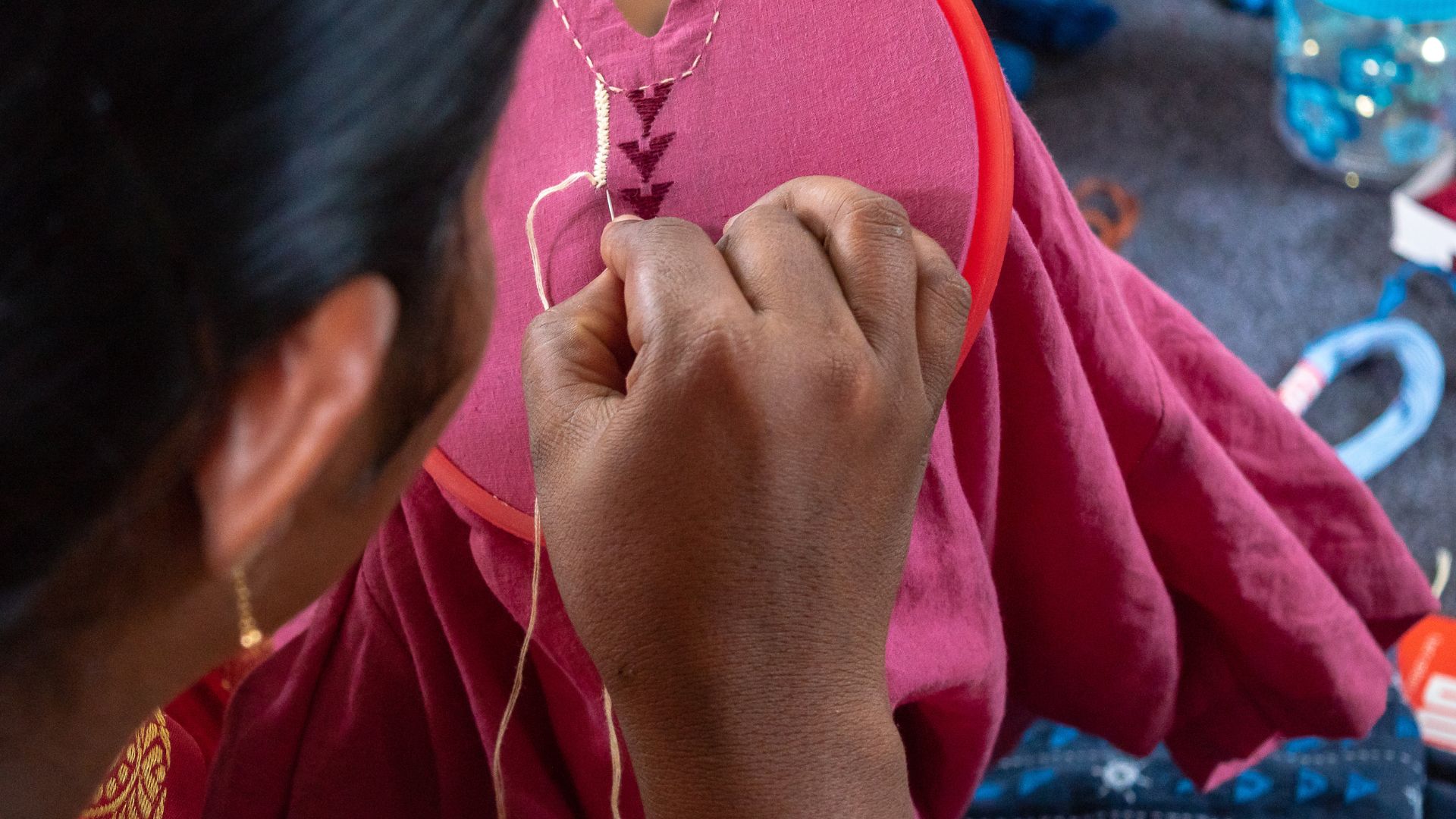
The U.S. State Department-sponsored Academy of Women Entrepreneurs (AWE) helps women learn core business skills, harness their talent and launch successful businesses. (By ABIR ROY BARMAN/Shutterstock.com)
Empowering women to participate in the economy can have a visible impact on the lives of their families and communities and help create sustainable livelihoods. The Academy for Women Entrepreneurs (AWE), sponsored by the U.S. State Department, helps enterprising women harness their talent and launch and scale successful businesses. Through AWE, participants learn core business skills, interact with experienced implementers and local mentors, and network with other businesspeople.
Mittalben Prajapati, Sonal Parekh, Rasheeda Syed and Savita Dakle are four women entrepreneurs from the Self-Employed Women’s Association (SEWA) in Gujarat and Maharashtra who started their entrepreneurial journeys with AWE. They are now champions of women’s economic empowerment as they create further employment opportunities for women in and around their communities.
A tale of resilience
Mittalben Prajapati is the eldest of three siblings living in Ahmedabad, Gujarat. Her family makes and sells clay utensils.
Growing up, Prajapati would watch her father make clay pots and observe the way he ran the business, learning the ropes early on. She says she knew she wanted to help further the family business and “make my father proud.”
However, after his death, the burden of earning a livelihood fell on Prajapati, her mother and siblings. “Ours is a traditional occupation,” she says. “After his death, my mother, younger sister and I have been running and expanding our clay business.” The AWE training that Prajapati received has been instrumental in teaching her the basics of how to survive in a competitive market.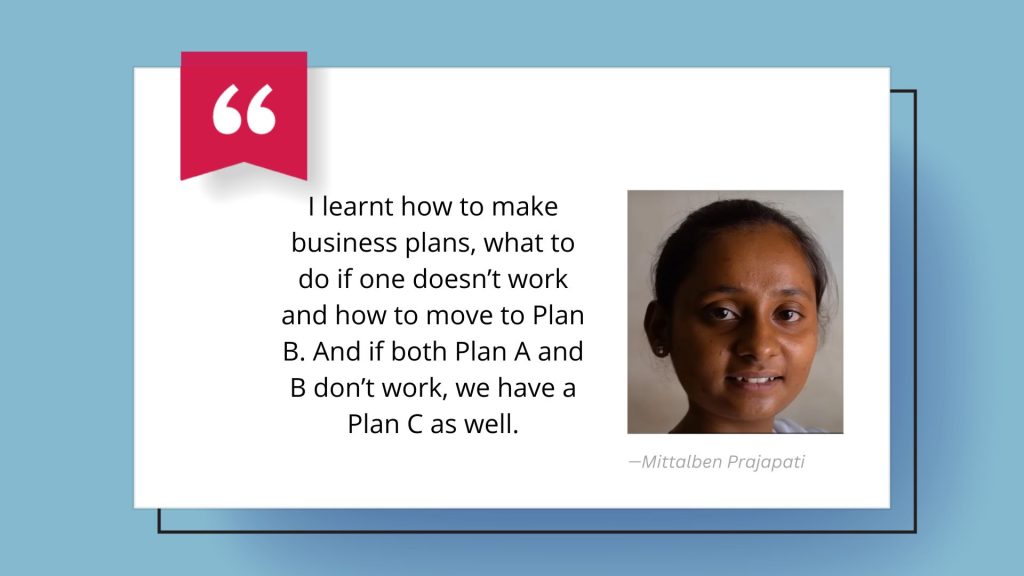
“I learnt how to make business plans, what to do if one doesn’t work and how to move to Plan B,” she says. Prajapati illustrates her business strategy with an example. “Our claypot business thrives only in summers, but ceramic products are sold throughout the year,” she explains. “This brings us good profits. And if both Plan A and B don’t work, we have a Plan C as well,” she giggles.
Prajapati says women who want to innovate in their businesses should “trust themselves, come up with new ideas and use creativity in a way that benefits them.”
Creating businesswomen
SEWA started in 1972 to make rural women self-reliant. It launched Kamala Bakery in 2015 in Gandhinagar to bake “forgotten food products,” explains Sonal Parekh, lead of operations.
Initially, Parekh and her team received basic training in the food sector, and they started baking biscuits from finger millets, wheat and oats. In 2021, through AWE’s 13 training modules, the team learned the basics of marketing, branding, promotion, ensuring products reach consumers, presentation, and social media marketing for their business. 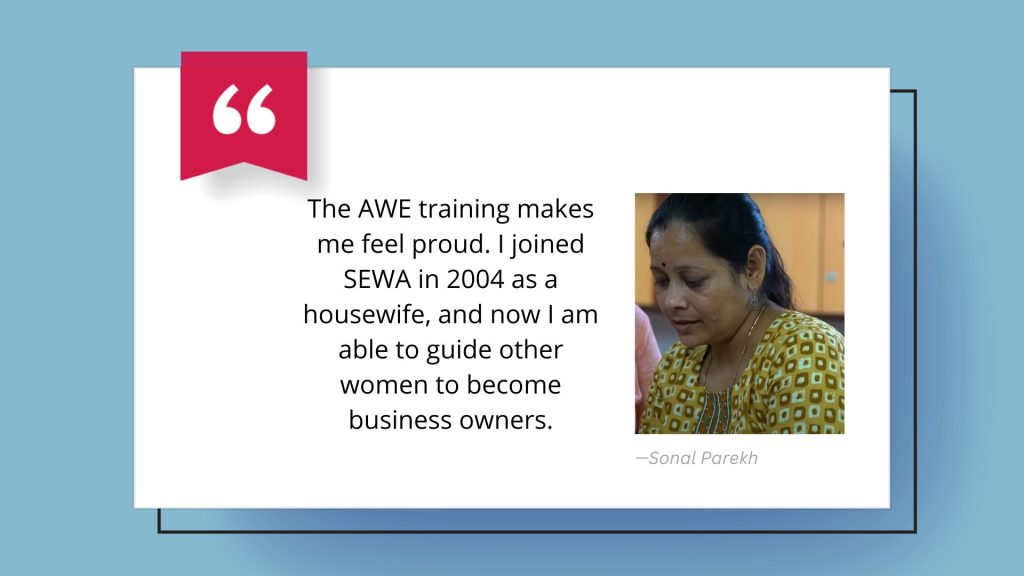
“This AWE training makes me feel proud,” says Parekh, who has been with SEWA for 19 years. “I joined SEWA in 2004 as a housewife, and now I am able to guide other women to become business owners. I want to make maximum women here self-reliant by being a part of this set-up,” she says.
Promoting local products
Rasheeda Syed in Patan, Gujarat, leads operations for Harki Garments, a rural enterprise started in 2012 with the support of SEWA Director Reema Nanavaty.
Rasheeda says she joined SEWA in 1996, at the behest of her father and elder sister. When she started work, she only attended the basic sewing training. Decades later, as SEWA facilitated the AWE training, Rasheeda and her team learned marketing and production skills and building business plans.
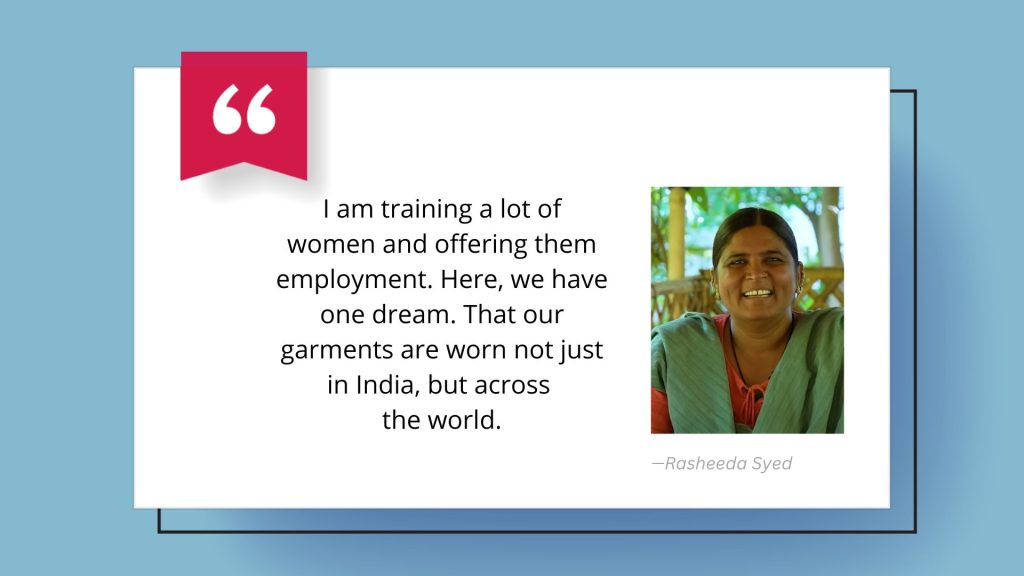
Following the AWE training, Mahira, a trainer at Harki, saw an opportunity in her young team. “We thought, why not market Harki on social media,” she explains. “Our colleagues at Harki take turns to model and photograph each other and have fun doing this.”
For Rasheeda, Harki’s success is her success. “I am training a lot of women and offering them employment opportunities,” she says. “This makes me proud. Here, we have one dream. That our garments are worn not just in India, but across the world.”
Finding independence
Savita Dakle is a farmer and entrepreneur in Aurangabad, Maharashtra. Initially, she says, running a household and educating her children with the family’s meager earnings was hard. “So, I decided, like other women, I will also start a business,” she says.
Dakle’s family are lentil farmers, and they now package, label and sell farm produce, thanks to the AWE training. “I had no idea how to do any of this,” she says. “I learnt so much at the AWE training—finding a business center, marketing our product and getting it to the marketplace, pricing it, etc.”
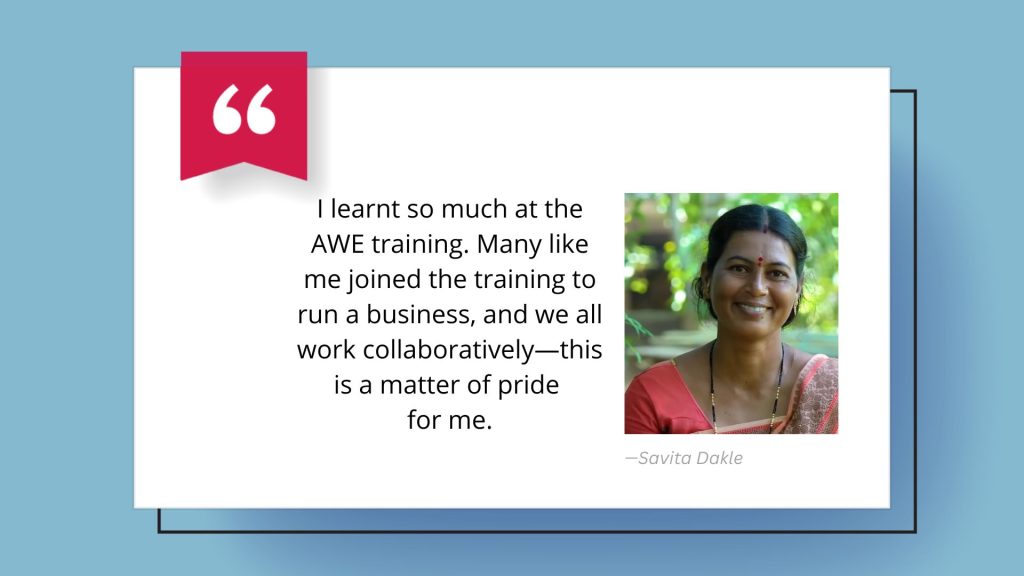
Dakle’s training has given her the opportunity to build a business and make it a success. She is also an inspiration to other women aspiring for financial independence. “Many women like me joined the training to run a business, and we all work collaboratively—this is a matter of pride for me,” she says. “In the future, I want to expand our business and wish there are independent women like me in all homes.”
Click here to sign up for the free SPAN newsletter: https://bit.ly/SubscribeSPAN
COMMENTS